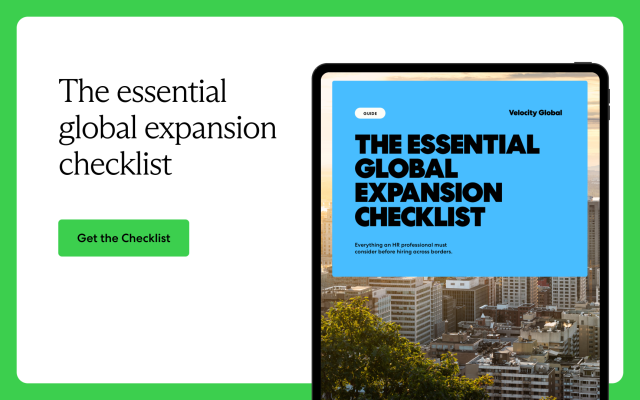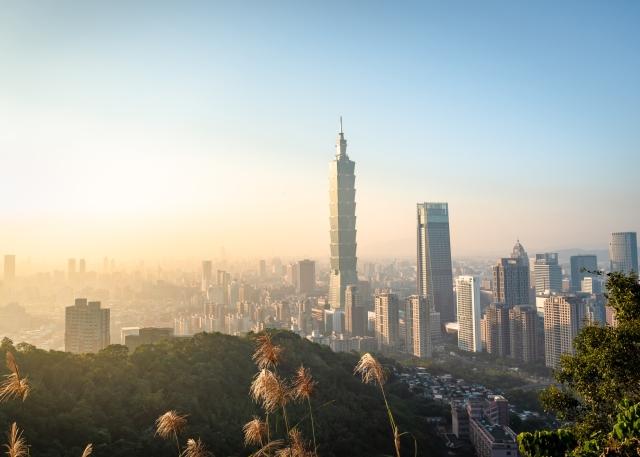Asia provides unique opportunities for companies seeking global expansion, and the Four Asian Tiger countries—Hong Kong, Singapore, South Korea, and Taiwan—are among the most vibrant and growing economies worldwide.
Sometimes referred to as the Asian Miracle, these Four East Asian economies experienced rapid industrialization, high development, and increased economic growth rates from the 1960s to the 1990s. Their growth and success have since propelled the Four Asian Tigers to maintain some of the world's most advanced, highly developed, and competitive economies.
The Four Asian Tigers share common characteristics, including export-oriented industrialization, well-developed infrastructures, strong government intervention, emphasis on education and technology, and a focus on developing a skilled workforce.
Each of these four economies benefits from an excellent location near some of the most populated cities in the world, making them ideal economies for companies expanding into Asia.
The following guide discusses each Asian Tiger’s role in global expansion and how global companies can tap into their unique, thriving markets.
Brief history of the Asian Tigers
The story of the Asian Tigers’ transformation begins after World War II. Following the fall of Japanese rule, these countries rapidly rebuilt their infrastructures to compensate for the devastation left by the war. Local governments pushed industrialization, which capitalized on local strengths and export-based economies.
As income and development rose, new consumer and entrepreneurial classes emerged, and the economies expanded. Driven by rapid industrialization and export policies, the Four Asian Tigers have steadily maintained high economic growth rates since the 1960s.
These four economies also recovered strongly from the 1997 and 2008 financial crises due to government stimulus programs in each region and now have some of the world’s highest incomes per capita.
Today, the Four Asian Tigers are among the top Asian markets for global expansion.
Get our essential global expansion checklist to learn key tips and insights on how to develop your global expansion strategy, conduct market research, and engage top global talent with compliance:

Hong Kong
Hong Kong is a Special Administrative Region in South China and one of the world's most densely populated territories, with a population of 7.4 million as of 2023. Hong Kong has a gross domestic product (GDP) of $385 billion, and its location provides foreign investors with a commercial and infrastructural gateway to mainland China.
Key market characteristics
Hong Kong has the most aggressive free-trade policies of the Four Asian Tiger countries. These policies have no import tariffs and only charge excise duties on four commodities: hard alcohol, tobacco, hydrocarbon oil, and methyl alcohol.
Hong Kong is also known for its sophisticated infrastructure, lack of restrictions on inward or outward investment, limited foreign exchange controls, low-tax regime, highly skilled labor pool, and strong finance and marketing sectors.
Hiring or relocating talent in Hong Kong
Work visas in Hong Kong are relatively easy to obtain in an effort to simplify hiring or employee relocation for international companies.
To obtain a work visa, an employee must have a job offer comparable to the existing market rate, and it can't be readily taken by the local workforce. The employee must also have a good educational background and proven professional experience or qualifications.
Looking to hire local talent in Hong Kong? See our Hong Kong hiring guide.
Singapore
Singapore has a population of 5.6 million as of 2023 and a GDP of $497 billion. The country is also one of the world's leading exporters of products and services, a global financial center, and a top market for growing tech companies.
Key market characteristics
Singapore is known for its business-friendly economy and forward-looking government policies. The country has a “no red tape” policy regarding incorporation, tax forms, and visa applications, making it one of the best places to do business.
Singapore’s government also invests heavily in the private sector, offering incentives for businesses.
These business incentives have fueled a massive drive for start-ups to enter the market, making it a top destination for growing tech companies.
Hiring or relocating talent in Singapore
Singapore is also known for its competitive workforce and acute English proficiency. Citizens of many foreign countries don’t need to obtain a business visa before arriving in Singapore, but they must obtain a Singapore work pass through their employer and provide proof of a job offer and credentials to work in the country.
Looking to hire local talent in Singapore? See our Singapore hiring guide.
South Korea
South Korea is located on the Korean Peninsula, with a population of 51.6 million as of 2023 and a GDP of $1.72 trillion. South Korea has a well-developed infrastructure, making it one of the most affluent countries in Asia.
Key market characteristics
The government heavily promotes foreign investment in the country by offering tax incentives and grants to foreign companies contributing to the economy. South Korea also helps companies find and pay for industrial sites and helps cover start-up costs.
South Korea has 18 trade agreements with countries and unions, giving local businesses free access to markets worldwide.
South Korea is one of the most tech-savvy countries in the world as a prominent manufacturer of electronics and semiconductors. The country also ranks among the top in the world for patent applications per capita and research and development expenditures.
Hiring or relocating talent in South Korea
South Korea has a highly educated and technologically literate workforce, but it also has a complicated immigration and visa system.
To relocate and work in South Korea, foreign employees must obtain a letter of recommendation from the government and have an established job offer before obtaining the appropriate visa—for which their employer applies on their behalf. The government distributes visas using a points system based on an individual’s qualifications and potential to benefit the country.
Looking to hire local talent in South Korea? See our South Korea hiring guide.
Taiwan
Taiwan has a population of 23 million as of 2023 and a GDP of $752 billion. The country’s rapid industrialization initially focused on heavy industries, including steel, electronics, and petrochemicals. Taiwan is still a manufacturing hub today, and businesses can build products at a low cost and in a stable market.
Key market characteristics
The Taiwanese government actively promotes foreign direct investment and has simplified the process for international companies to set up and operate.
Taiwan’s foreign investment policies largely focus on maintaining its tech leadership, and it has attracted many technology investors due to its infrastructure, large industrial base, advanced research and development, and highly skilled workforce.
Taiwan's manufacturing hub focuses primarily on producing parts, or intermediate goods, that are incorporated into final products elsewhere. High-skilled manufacturing industries drive Taiwan’s export economy, especially in electronics and machinery.
Hiring or relocating talent in Taiwan
In recent years, Taiwan has allowed more leeway for international companies to relocate or hire foreign nationals and works hard to ensure that employees can enter the country freely to help bolster the local economy. To obtain a work visa for Taiwan, the sponsoring employer must apply at the Ministry of Labor to onboard their employees after extending offer letters.
Looking to hire local talent in Taiwan? See our Taiwan hiring guide.
Why choose the Four Asian Tigers for global expansion
The Four Asian Tiger countries offer unique opportunities for companies looking to bring their business into a thriving, stable economy for global expansion. Expanding into the Four Asian Tigers is an attractive business strategy for many reasons, including the following:
- Economic growth and stability. These economies have demonstrated resilience and adaptability, even during global economic downturns. Their economic history makes them attractive markets for businesses seeking expansion.
- Strategic location. Each Asian Tiger's location provides easy access to other key regional markets in Asia, making them strategic hubs for trade and commerce and establishing a regional presence.
- Infrastructure and connectivity. The Four Asian Tiger countries facilitate the movement of goods and services with well-developed infrastructure and efficient transportation networks.
- Financial centers. Hong Kong and Singapore offer robust banking and financial services, providing access to sophisticated financial systems and global financial centers.
- Technological advancements. South Korea and Taiwan are leaders in cutting-edge technology and innovation, including industries focusing on semiconductors and electronics.
- Skilled workforce. All Four Asian Tigers have highly skilled and educated workforces, having invested heavily in education and skill development.
- Business-friendly environment. These economies attract foreign investment with business-friendly policies, including low taxes and minimal bureaucratic hurdles.
- Diverse consumer markets. The Four Asian Tigers have diverse and sophisticated consumer markets and provide opportunities for companies in various industries.
- Government support. The governments in these markets support foreign direct investment and provide expansion incentives for foreign businesses.
- Trade agreements. The Four Asian Tigers help businesses navigate international trade in their regions through participation in regional trade agreements and economic partnerships.
- Cultural diversity. The Asian Tigers offer culturally diverse workforces and business opportunities that can position companies well for broader success in the Asia-Pacific region.
Simplify expansion to the Four Asian Tigers with Velocity Global
The Four Asian Tigers—Hong Kong, Singapore, South Korea, and Taiwan—have experienced rapid economic growth and proven that their economies can weather economic storms. Each market presents a lucrative avenue for companies seeking to establish a global presence.
However, entering new foreign markets presents workforce management complexities and compliance challenges. Consider leveraging an employer of record (EOR) like Velocity Global to quickly enter new markets and reduce risk.
Velocity Global is a market-leading, full-service EOR provider that leverages a cloud-based platform to help companies expand to new markets faster with its unmatched scale, in-country expertise, and global workforce solutions.
Use us as a temporary hiring solution while you establish legal foreign entities, or partner with us long-term to eliminate the need for entity setup altogether.
Whatever your business objectives, our integrative Global Work Platform™ streamlines every step of global workforce management—including onboarding, payroll, benefits, immigration, and compliance. Easily expand into new markets with our global workforce solutions while our team of experts provides ongoing region-specific support.
Contact us to learn more about how we can help you tap into the lucrative Asian Tiger markets with ease, speed, and compliance.
Topic:
Global Growth




